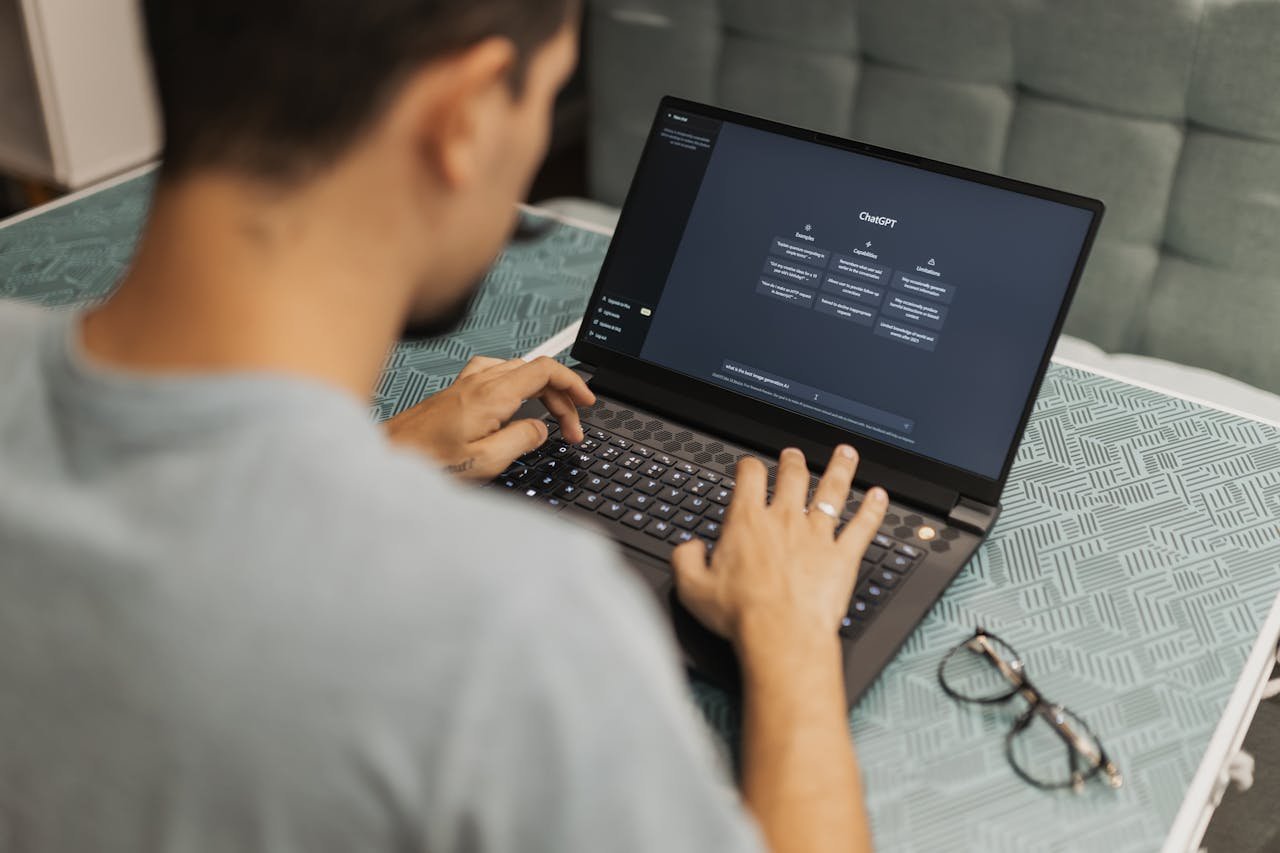Business
Beyond bitcoin: MicroStrategy is ramping up its AI business

Now that it has become the largest corporate holder of bitcoin (BTC), it’s possible that some investors may forget – or not even know – what it is that MicroStrategy (MSTR) actually does.
That’s because the company – which now operates under the name Strategy – and its founder Michael Saylor have become so associated with the rapid growth of bitcoin over the past several years, it’s now overshadowed its business-analytics software business.
The company began buying BTC in 2020 with the goal of building a bitcoin treasury, becoming the first publicly traded company to purchase crypto as part of its capital allocation strategy.
Strategy first bought 21,454 bitcoins – worth over $250 million at the time.
It recently acquired an additional 245 bitcoins for $26 million and now owns 592,345 bitcoins as of June 23.
In fact JPMorgan recently flagged Strategy’s inclusion on the Nasdaq index as a possible risk because of its continued aggressive bitcoin acquisitions.
The company’s crypto accumulation “has transformed MicroStrategy into a leveraged Bitcoin fund, raising concerns about its continued inclusion in major equity indices,” as Investing.com reported.
Nonetheless, Saylor’s strategy of building a bitcoin treasury for capital allocation purposes has now become widely emulated as crypto becomes increasingly mainstream.
Alleviating ‘one of the greatest barriers to AI adoption’
But last week the company shifted away from crypto and back toward its software business by announcing the release of Strategy Mosaic, an AI powered “universal intelligence layer” platform designed to connect disparate data sources across enterprises to support AI applications.
The company said in a press release that as organizations modernize their data structures, the siloed systems within these structures produce inconsistent metrics, and also leads to governance gaps.
The “lack of clean, connected, and organized data” has created “one of the greatest barriers to AI adoption,” it said.
Strategy Mosaic was built to provide consistent and secure access to information across all AI applications.
“With Mosaic, we’ve broken through the biggest barriers to business innovation: data silos, conflicting metrics, and high data transformation costs,” Saurabh Abhyankar, chief product officer at Strategy, said in a statement. “Our powerful semantic graph ensures a single source of truth for enterprise analytics, and Mosaic extends this with a universal layer of intelligence compatible with any cloud, reporting tool, and data source.”
The platform’s features include a semantic layer that ensures consistent business definitions and metrics across data sources.
It also offers universal access through various APIs, as well as AI-powered data modeling through its Mosaic Studio.
The company said the Mosaic Studio can automate data preparation and modeling tasks 10 times faster than traditional methods.
The move to build out its AI business could be a smart long-term move, as the company posted a $5.9 billion unrealized bitcoin loss for the first quarter, according to an SEC filing in April.
However, with bitcoin rallying once again, Saylor could look to continue ramping up his BTC holdings, which he mostly funds by issuing stock, preferred shares, and convertible bonds.
Bitcoin was trading below $80,000 in April after a steep decline in Q1 – but was back up near $107,000 on Friday.
And Wall Street is thus far solidly bullish on its bitcoin treasury playbook.
Strategy’s stock is up 32.6% YTD and has soared 151.7% over the past year.
Business
AI Gold Rush Breeds Harsh 996 Work Routine In Silicon Valley | Business News
Last Updated:
Silicon Valley tech giants battle for AI dominance, offering huge pay and adopting the 9-9-6 culture in San Francisco startups.

AI Boom, Human Cost: San Francisco Startups Push 9-9-6 Work Schedule
The race for AI heats up, with tech companies in Silicon Valley pouring billions into overpowering others and grabbing the largest pie in the emerging market. Companies have reportedly begun poaching human resources by offering millions of dollars in a pay package. No one wishes to lag behind when things are high at stake. Everyone is ready to pour sweat and blood, literal and metaphorical.
At the center of this heated race, a new culture called 9-9-6 has emerged in the startups of San Francisco, USA.
What Is 9-9-6 Culture?
It means employees of these startups work from 9 in the morning to 9 in the evening, Monday through Saturday. It translates to 72 hours of work weekly, going away from 4 or 5 day work week culture being promoted across Europe, particularly Nordic countries for more leisure time.
An X handle named TBPN in the post said that they checked the receipts and found that the claims are “true” – Saturdays have become a workday. “The great lock-in is in full effect,” it added.
Many San Francisco startups claim they practice 9-9-6, so we checked the receipts.We worked with Ramp to look at the data and it’s true – Saturdays have become a workday.
The great lock-in is in full effect. pic.twitter.com/MbwAICe3Dy
— TBPN (@tbpn) September 8, 2025
AI War Among Tech Titans
Several big tech giants, including Meta, Google, Microsoft and Amazon, have poached the startup founders with a high paycheck to work with their teams building the smartest Large Language Models (LLMs) and improving the hot application-based technology. For instance, Meta shocked the tech industry when it announced to invest a $14.3 billion in data labelling startup Scale AI. As part of the agreement, Meta took a 49% stake in the company, hired its CEO Alexandr Wang to lead a new superintelligence lab and said it would deepen the work it does with Scale.
Since the inception of ChatGPT by OpenAI in late 2020, the official age of AI has begun. Two years after the trailblazing technology, there’s no official winner, but a sudden push to have everything as AI-laced.
A team of writers and reporters decodes vast terms of personal finance and making money matters simpler for you. From latest initial public offerings (IPOs) in the market to best investment options, we cover al…Read More
A team of writers and reporters decodes vast terms of personal finance and making money matters simpler for you. From latest initial public offerings (IPOs) in the market to best investment options, we cover al… Read More
September 10, 2025, 10:22 IST
Read More
Business
AI Recruitment Is A Strategic Tool for Businesses, not just an HR function: A Business Leader's POV – People Matters India
Business
Advancing Business Efficiency Through Silverback Chatbot AI Workflow

Silverback AI Chatbot continues to highlight its ongoing developments in artificial intelligence solutions with a particular focus on the role of workflows in managing automation and communication. The introduction of the Silverback Chatbot AI Workflow underscores the company’s position in supporting organizations seeking structured, adaptable, and intelligent processes for customer engagement and operational tasks.
The Silverback Chatbot AI Workflow is built to provide a framework where businesses can integrate multiple functions under one system, enabling a seamless connection between communication, task execution, and decision-making. Instead of handling fragmented activities across different applications, this approach organizes activities through AI-driven steps, allowing each stage of interaction or automation to follow a logical path. The result is not just increased efficiency, but also the ability to manage operations with more clarity and reduced manual oversight.
Workflows in the context of AI chatbots are not new, but their evolution has been significant. Early chatbot systems largely focused on scripted responses to user queries, often limited by predefined pathways. The current landscape, as represented by Silverback Chatbot AI Workflow, extends far beyond those initial capabilities. Modern workflows combine automation, adaptive intelligence, and contextual understanding to deliver a process that adjusts dynamically based on user input and organizational needs. This adaptability is particularly relevant in sectors where customer interaction can take unpredictable directions, requiring systems that respond flexibly while maintaining structure.
One of the distinguishing features of the Silverback Chatbot AI Workflow is its ability to connect with a wide variety of functions that businesses rely on. Whether coordinating internal tasks such as ticket assignment, or external-facing services like guiding a customer through a purchase or troubleshooting inquiry, workflows provide a consistent and reliable mechanism for completion. By integrating communication with automation, businesses gain a model that both supports employees and delivers a smoother experience to clients or customers.
The development of these workflows represents a broader trend in artificial intelligence: moving from standalone tools toward ecosystems that unify operations. As businesses encounter growing complexity in managing communication channels and back-end processes, AI-driven workflows emerge as a solution that reduces friction while preserving accuracy. This shift not only benefits productivity but also helps organizations maintain compliance, consistency, and measurable results across departments.
A key advantage of implementing structured workflows is the reduction of manual repetition. In many industries, employees spend significant time repeating tasks such as data entry, scheduling, or responding to routine inquiries. The Silverback Chatbot AI Workflow addresses these inefficiencies by automating predictable steps, allowing employees to redirect their attention toward more nuanced work. This combination of human oversight with machine efficiency illustrates the complementary role AI can play rather than replacing human decision-making entirely.
The adaptability of workflows is equally important. Businesses rarely operate in static environments; customer expectations, regulatory requirements, and internal priorities evolve regularly. A static system that cannot adjust to new conditions quickly becomes outdated. By contrast, the Silverback Chatbot AI Workflow is designed to be adjustable, so organizations can update pathways, introduce new actions, or refine decision points without overhauling their entire system. This modularity helps ensure that the technology remains valuable in the long term, aligning with shifting business landscapes.
From a customer engagement perspective, workflows are essential to ensuring interactions remain coherent and purposeful. When individuals engage with an AI chatbot, they expect clear guidance toward solutions. A poorly structured interaction can create confusion or dissatisfaction. The Silverback Chatbot AI Workflow mitigates this risk by providing a clear, step-by-step process behind each interaction, while still allowing flexibility when user input diverges from the expected path. This balance between structure and adaptability is central to maintaining user confidence in AI-driven support.
Beyond customer engagement, workflows support broader business objectives, such as operational transparency and performance tracking. Each step within a workflow can be monitored, allowing organizations to identify areas of delay, frequent points of user drop-off, or opportunities for further automation. This level of visibility provides valuable data that can inform decision-making, improve resource allocation, and support continuous optimization.
The emphasis on workflow also connects to wider discussions about how businesses adopt AI responsibly. Rather than deploying technology haphazardly, workflows provide a framework that ensures AI implementation aligns with organizational goals and ethical considerations. Structured pathways reduce the risk of unintended outcomes, such as incorrect information delivery or inconsistent handling of user data. By embedding rules and oversight into workflows, Silverback AI Chatbot demonstrates how artificial intelligence can be deployed responsibly and effectively.
As industries continue to explore the role of AI in daily operations, the conversation is shifting toward systems that integrate smoothly with existing processes while offering flexibility for growth. Silverback Chatbot AI Workflow exemplifies this direction by highlighting the importance of both structure and adaptability. Instead of relying on fragmented tools that require manual coordination, organizations can depend on workflows to bring clarity and automation to complex activities.
The introduction of Silverback Chatbot AI Workflow is not only an update to existing chatbot capabilities but also an indication of how the field of conversational AI is advancing. Workflows allow businesses to think beyond individual conversations, considering instead the broader chain of actions and decisions that must occur to deliver effective service. By organizing these actions intelligently, workflows transform AI chatbots from simple conversation partners into central hubs of business operations.
The broader impact of adopting structured workflows extends to scalability as well. Organizations often face challenges when attempting to expand operations, as growth introduces new layers of complexity. Without a reliable system, scaling can lead to inefficiencies or inconsistent service. Silverback Chatbot AI Workflow provides a foundation that supports scalability, ensuring that as organizations expand, their AI-driven processes maintain reliability and coherence.
In reflecting on this development, it is clear that the role of workflows in AI is more than a technical improvement; it represents a shift in how businesses conceptualize the integration of artificial intelligence. By moving beyond isolated interactions and embracing a system that organizes tasks comprehensively, organizations place themselves in a stronger position to harness the full potential of AI. Silverback Chatbot AI Workflow stands as an example of this transformation, showing how structured yet adaptable systems can support both present needs and future growth.
As AI continues to progress, the ability to unify operations through workflows will likely become a defining factor in successful adoption. Silverback AI Chatbot, through its AI Workflow approach, demonstrates how technology can support clarity, efficiency, and long-term adaptability. In doing so, it highlights the growing importance of structured intelligence in shaping the next phase of business operations. For more visit: https://pressadvantage.com/story/82200-silverback-ai-chatbot-expands-ai-agents-technology-to-strengthen-role-of-chatbot-marketing-in-busine
###
For more information about Silverback AI Chatbot Assistant, contact the company here:
Silverback AI Chatbot Assistant
Daren
info@silverbackchatbot.com
-

 Business2 weeks ago
Business2 weeks agoThe Guardian view on Trump and the Fed: independence is no substitute for accountability | Editorial
-
Tools & Platforms4 weeks ago
Building Trust in Military AI Starts with Opening the Black Box – War on the Rocks
-

 Ethics & Policy1 month ago
Ethics & Policy1 month agoSDAIA Supports Saudi Arabia’s Leadership in Shaping Global AI Ethics, Policy, and Research – وكالة الأنباء السعودية
-

 Events & Conferences4 months ago
Events & Conferences4 months agoJourney to 1000 models: Scaling Instagram’s recommendation system
-

 Jobs & Careers2 months ago
Jobs & Careers2 months agoMumbai-based Perplexity Alternative Has 60k+ Users Without Funding
-

 Podcasts & Talks2 months ago
Podcasts & Talks2 months agoHappy 4th of July! 🎆 Made with Veo 3 in Gemini
-

 Education2 months ago
Education2 months agoMacron says UK and France have duty to tackle illegal migration ‘with humanity, solidarity and firmness’ – UK politics live | Politics
-

 Education2 months ago
Education2 months agoVEX Robotics launches AI-powered classroom robotics system
-

 Funding & Business2 months ago
Funding & Business2 months agoKayak and Expedia race to build AI travel agents that turn social posts into itineraries
-

 Podcasts & Talks2 months ago
Podcasts & Talks2 months agoOpenAI 🤝 @teamganassi


